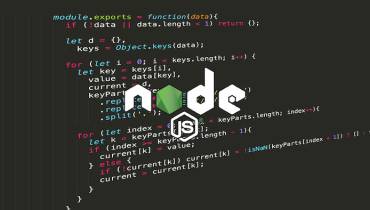Why Jargon Is Damaging to SEO

Every industry has its jargon — buzzwords, acronyms, and expressions intended to pare down complex ideas in the interest of more efficient communication. That's not a bad thing. Quite the contrary, in a group of people who can understand it, jargon is an invaluable tool.
Unfortunately, for laypeople, jargon tends to have the opposite effect. Rather than receiving and understanding the meaning behind your language, they're likely to find it gibberish - a jumble of unintelligible and meaningless words. That, in turn, leads to frustration, confusion, and alienation.
And, as you might expect, all three of those things are incredibly damaging from the perspective of search engine optimization (SEO).
User Experience
Although modern SEO still encompasses many technical elements, such as sitemaps, website audits, redirects, and structured data, its greater focus is on the user. On providing users with the best experience and most direct answer to their query, more often than not, this answer does not involve jargon.
Instead, the best SEO is communicated in clear, concise, and simple language. It explains any foundational concepts and ideas in terms that anybody can understand, rather than assuming some experience level. Remember, although providing quality information is of utmost importance, so is user experience.
Write out your sentences using keywords your target audience would use. If that includes highly seasoned professionals in your industry, then jargon would be the right approach. If it’s geared more towards beginners and intermediate readers in your industry, steer clear of using any jargon.
If you do include some jargon, be sure to define them clearly so your readers can understand.
Readability
Overusing jargon can have a significant impact on the readability of a piece of SEO content. If every other sentence is laden with unnecessary buzzwords and acronyms, even an audience that understands them is going to be put off. Even people who know what you're saying will look at your content and dismiss it as low quality or too pretentious.
Believe it or not, this is something I see often happen with industry experts. They've grown so comfortable with their complex vocabulary, so used to having audiences that understand them without explanation that when the time comes to speak to people who don't possess the same knowledge they do, they simply can't. It doesn't occur to them that not everyone has the same expertise they have, and so their words fall flat.
Jargon Should Be Used When Appropriate
It’s worth mentioning that not every audience is exactly the same. You need to know who your audience is and craft your messages in a way that they will understand without any trouble.
If you are composing a thought leadership piece geared primarily towards system administrators, for example, the use of jargon is may be appropriate. They don't need you to explain anything to them.
However, if your audience is the general public, jargon is usually not acceptable. Most people won’t know or understand the bulk of industry jargon used in SEO and so there is a risk of people misunderstanding or misinterpreting your words.
The message, is simple: Know your audience and understand the language they use. If jargon is part of their vocabulary, use it where necessary and appropriate. However, if it isn't, adjust your communication manner and SEO content to something everyone can easily understand.
Because otherwise, you may as well not be speaking at all.






![Understanding Business Insurance Policies: Key Terms and Definitions [node:title]](/sites/default/files/styles/front_featured__front_/public/business-insurance.jpeg?itok=ErsVEJiG)

![The True Cost of Business Break-Ins [node:title]](/sites/default/files/styles/front_featured__front_/public/hands-gloves-break-in-business-costs.jpeg?itok=p9V6IKqi)



























